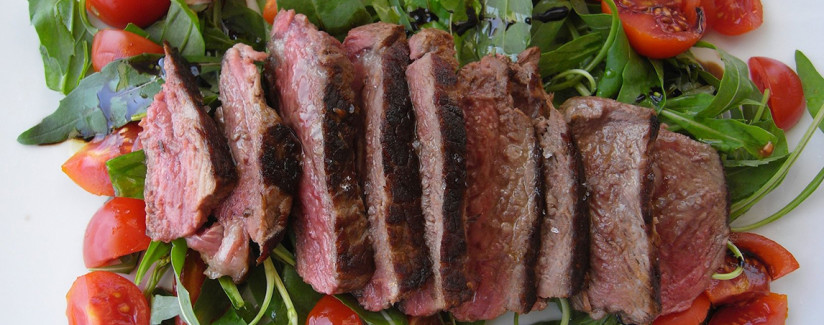
Want to Lose Weight? Protein May Be the Key
It seems everywhere you turn these days, there is a new magic pill, a revolutionary diet, something that can forever shrink your waistline. Claims of simply popping a pill, never needing to count calories and never feeling hungry abound. We would love for these claims to be true, and millions of dollars are spent every year in hopes that they are.
What experts have been saying for decades is that it’s just not that simple. It really is an equation of calories in and energy exerted (calories out). But there’s some new research (not to make things more complicated…) indicating that the type of calories consumed may also be important in managing weight and appetite.
Researcher Alison Gosby, PhD, from the University of Sydney, claims that focusing on protein intake could be an important factor. In the study, men and women were divided into groups and provided with diets containing either 10%, 15% or 25% protein. At the conclusion of the study, it was discovered that both men and women who ate a diet with 10% protein consumed 12% more calories than they did on a 15% protein diet.
Gosby and other researchers have a belief about protein. If the level of protein in the diet is too low, ”We keep eating in an attempt to attain our target level of protein,” Gosby told WebMD. Some believe that low protein diets are helping to drive the obesity epidemic. And from 1961 to 2000, research shows that the amount of protein in the diet has decreased from 14% to 12.5%.
In the study, when subjects were given a diet with 10% protein, the men and women consumed more carbohydrates and fatty foods. When the 15% and 25% protein diets were provided, there didn’t seem to be a difference in total calories eaten.
When asked what she thinks about this study, Connie Diekman, a registered dietitian and the director of university nutrition at Washington University, said that though it is a short-term study, “It provides a bit more support that consuming protein helps us feel full longer. Including some [protein] each time we eat can help us make better food choices and trim what we eat the next time we eat.”
So how do we ensure we’re getting a diet with 15%-25% protein? First and foremost, Gosby recommends avoiding foods high in fat and simple sugars – just like the dietary guidelines recommend – since these foods can increase the likelihood that people will overeat and gain weight. If you’re on a 2,000-calorie-a-day diet, 300 calories should come from protein, since each gram has 4 calories, your total intake should be 75 grams of protein. Diekman offers this guide: Six servings of whole grains give you 18 of your 75 grams of protein, while 3 cups of dairy give you 24 grams.
“My Yummy Steak!” by momo is licensed under CC BY 2.0.


























